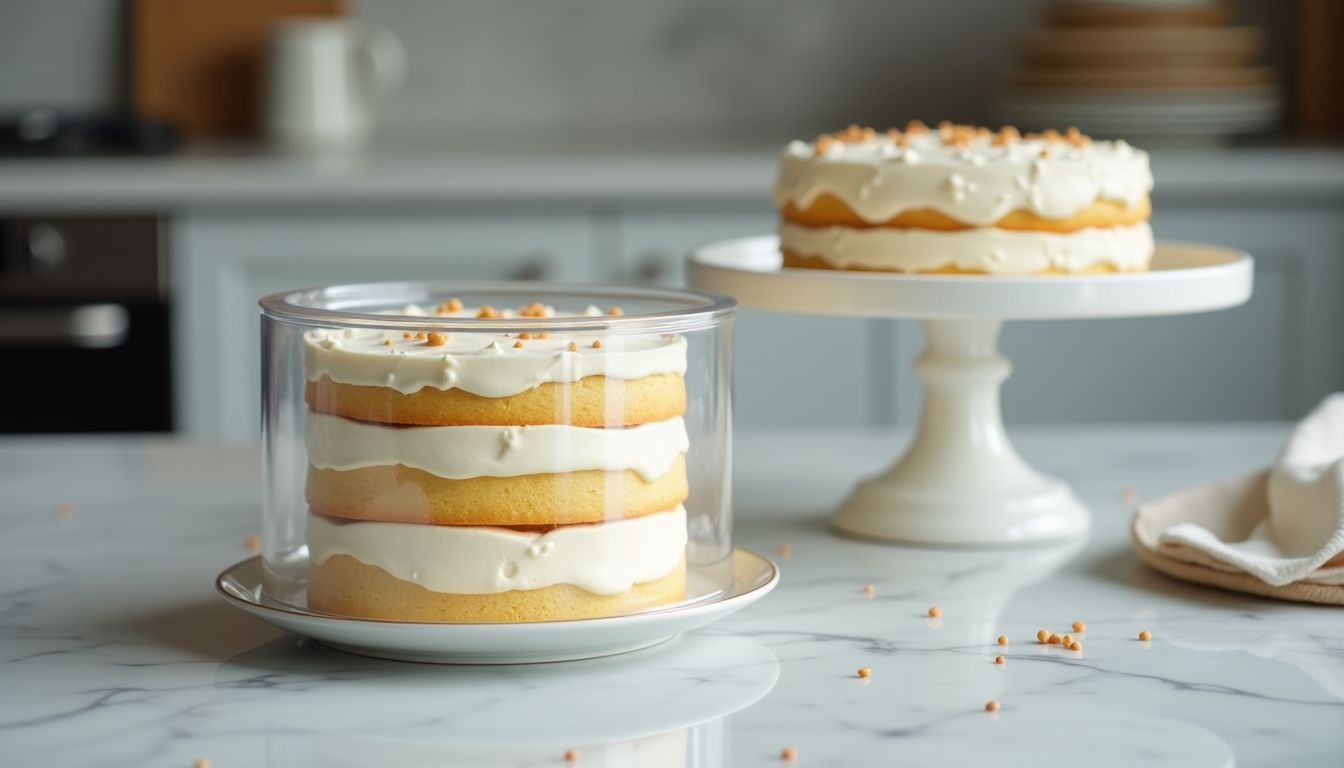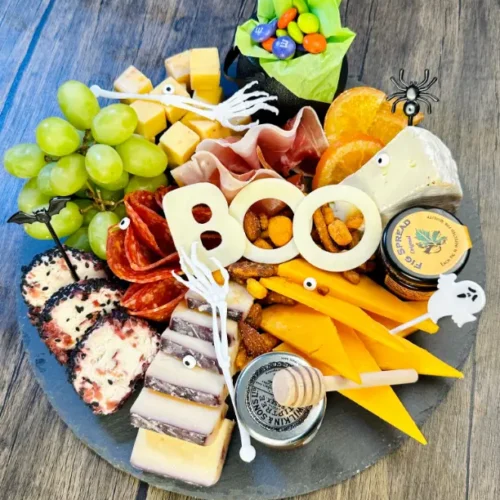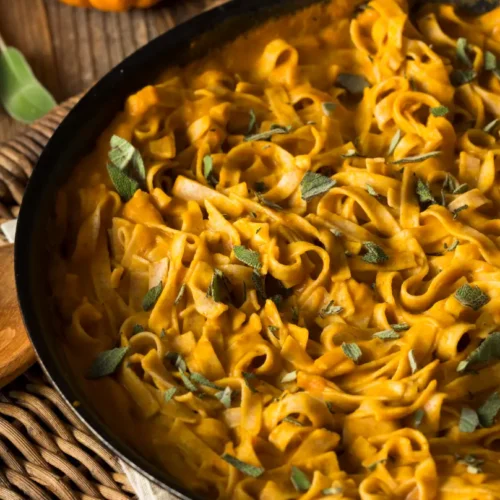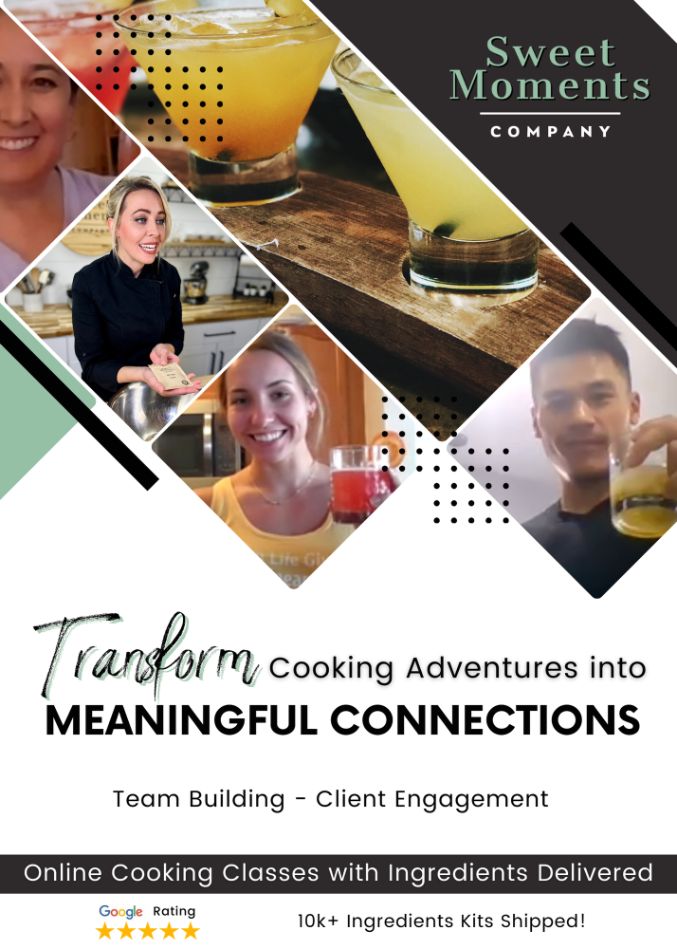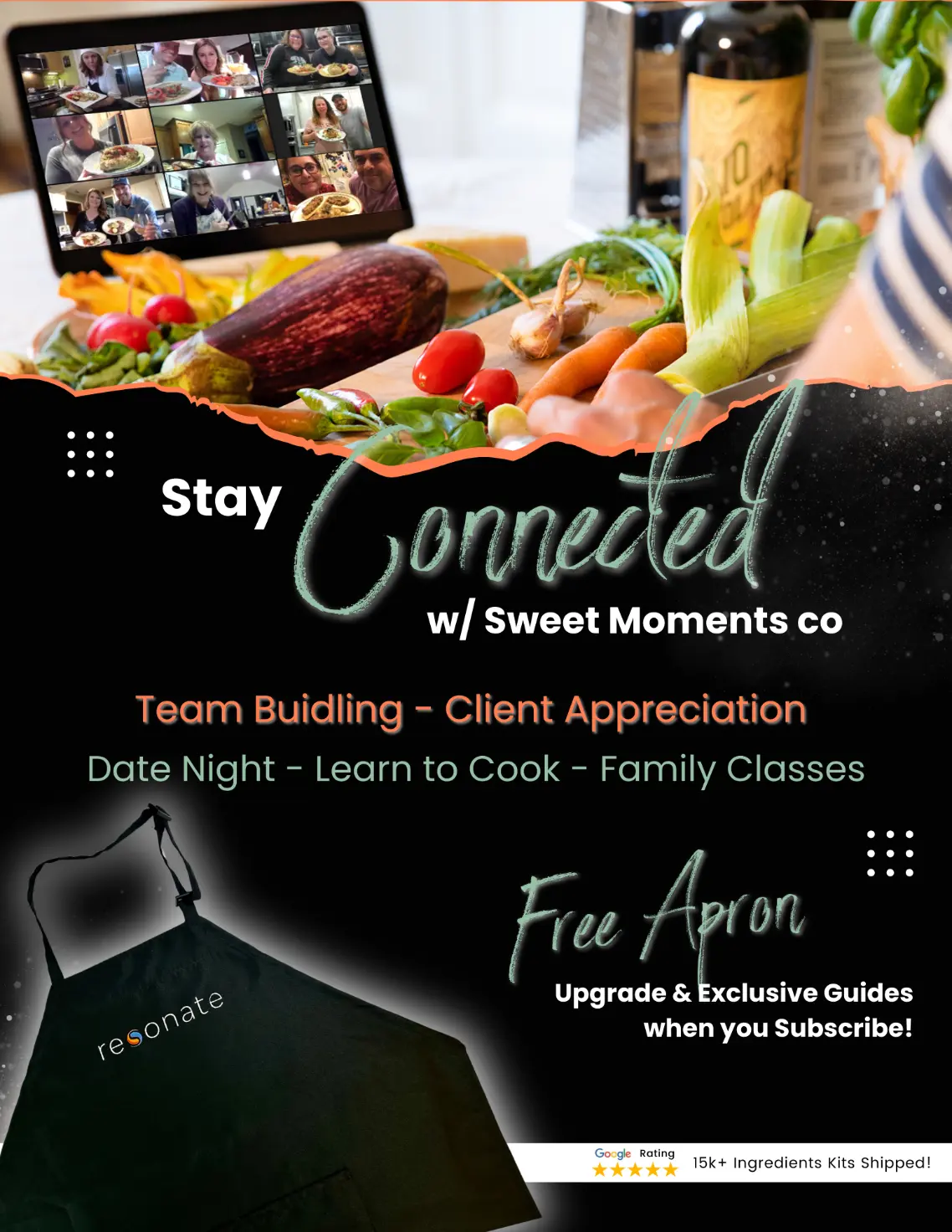Watching little ones tackle their first batch of pancake batter brought a kitchen scene to life colored with joy and chaos. Flour dusted the counter like an early snow, while eggshells bobbed in the bowl—a testament to enthusiastic efforts rather than culinary precision.
And there, amidst it all, was a sparkle of pride in those small eyes that could outshine any messy countertop. These are the moments that sweetly remind us: cooking is far more than just satiating appetites; it’s akin to a boundless classroom where lessons in problem-solving are gently folded into every meal alongside aromatic herbs and spices.
Through my years donning both chef whites and instructing students, I’ve come to recognize how brandishing a wooden spoon can be as transformative for curious young minds as waving a magic wand.
It’s undeniable: life has its way of lobbing unexpected challenges our way—much like an ace pitcher with a mean curveball—and we want our children gripping those moments with unwavering poise.
The act of cooking provides an under-the-radar yet potent training ground for this very purpose. As kids learn the artful dance of balancing flavors and coordinating ingredients on their path to creating mouthwatering dishes, they naturally whisk together critical thinking skills and creativity—those indispensable elements for navigating life’s varied trials.
By article’s end, you’ll have more than just your taste buds enticed; you’ll see your kitchen in a new light—as not only the heart of your home but also as fertile soil cultivating resilience within your child.
So let’s get ready to stir things up—the beauty is found not only in the pudding but also within these delectable learning opportunities simmering right before us.
Culinary Insights
- Cooking lets kids practice problem – solving by making them think about what happens if they mix certain things or change the recipe.
- While cooking, children work on important skills like planning, measuring, and learning from mistakes—all of which help them in life outside the kitchen too.
- By cooking together as a family, kids not only create tasty food but also learn to cooperate and communicate with others.
The Importance of Problem-Solving Skills in Children
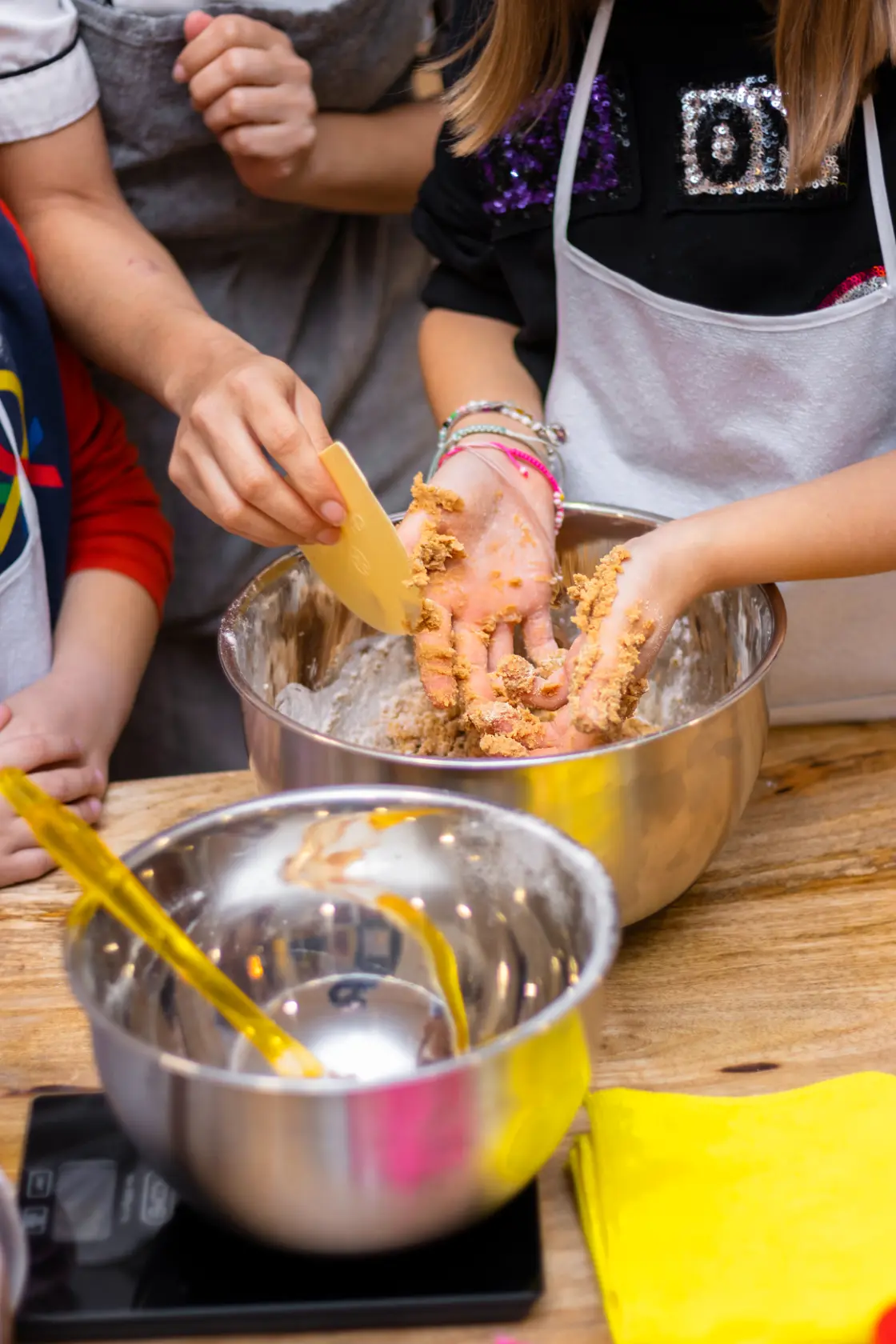
Learning to solve problems is like giving kids a superpower. They start to see challenges not just as roadblocks, but as chances to grow and learn. In the kitchen, they get to turn into mini detectives, figuring out the right amount of flour for cookies or how long to cook pasta so it’s just perfect.
You know how it feels when you crack a tough riddle? That’s what children experience when they find solutions in cooking.
Thinking about problem-solving skills early on sets kids up for success in school and beyond. It helps them with social skills as they share tools and space while making a salad or decorating cakes together.
Plus, it builds their confidence big time! Every time they taste a dish that turned out well, they think “I did that!” And let me tell you – seeing that proud smile is better than any thank-you note written in crayon.
The Role of Cooking in Children’s Cognitive Development
Problem-solving skills are a big deal for kids, and guess what? Cooking plays a huge part in growing their brains too. It’s like a gym workout but for the mind. When little ones measure flour or figure out how much time it takes to cook pasta, they’re not just making dinner—they’re boosting their brainpower!
See, cooking involves a bunch of thinking steps that help kids get smarter in different ways. They learn new words as they read recipes and chat about what they’re making. This helps with language development big time! Plus, remembering all those steps in a recipe can improve memory.
And there’s more—cooking is perfect for learning by doing. Kids try things out, mess up sometimes, and then try again. This teaches them to keep going even when stuff gets tricky.
They also learn to plan ahead and make choices—all while stirring the pot or rolling out dough.
Let me tell you, seeing your cake rise in the oven or sharing cookies you made with friends—that feels awesome! That sense of “I did it!” really builds confidence.
So parents looking for cooking classes for your kiddos—you’re on to something great! Not only will your children be able to whip up some tasty treats but their minds will thank you too.
8 Ways Cooking Enhances Problem-Solving Skills
Oh, the kitchen — not just a place for snacking and sizzling but a playground where kids can beef up their problem-solving chops! (And you thought spaghetti was just for eating, didn’t ya?) Keep reading to stir the pot on how your little chefs can whip up some serious skills with every chop, blend, and bake..
Inspires creativity and independent thinking
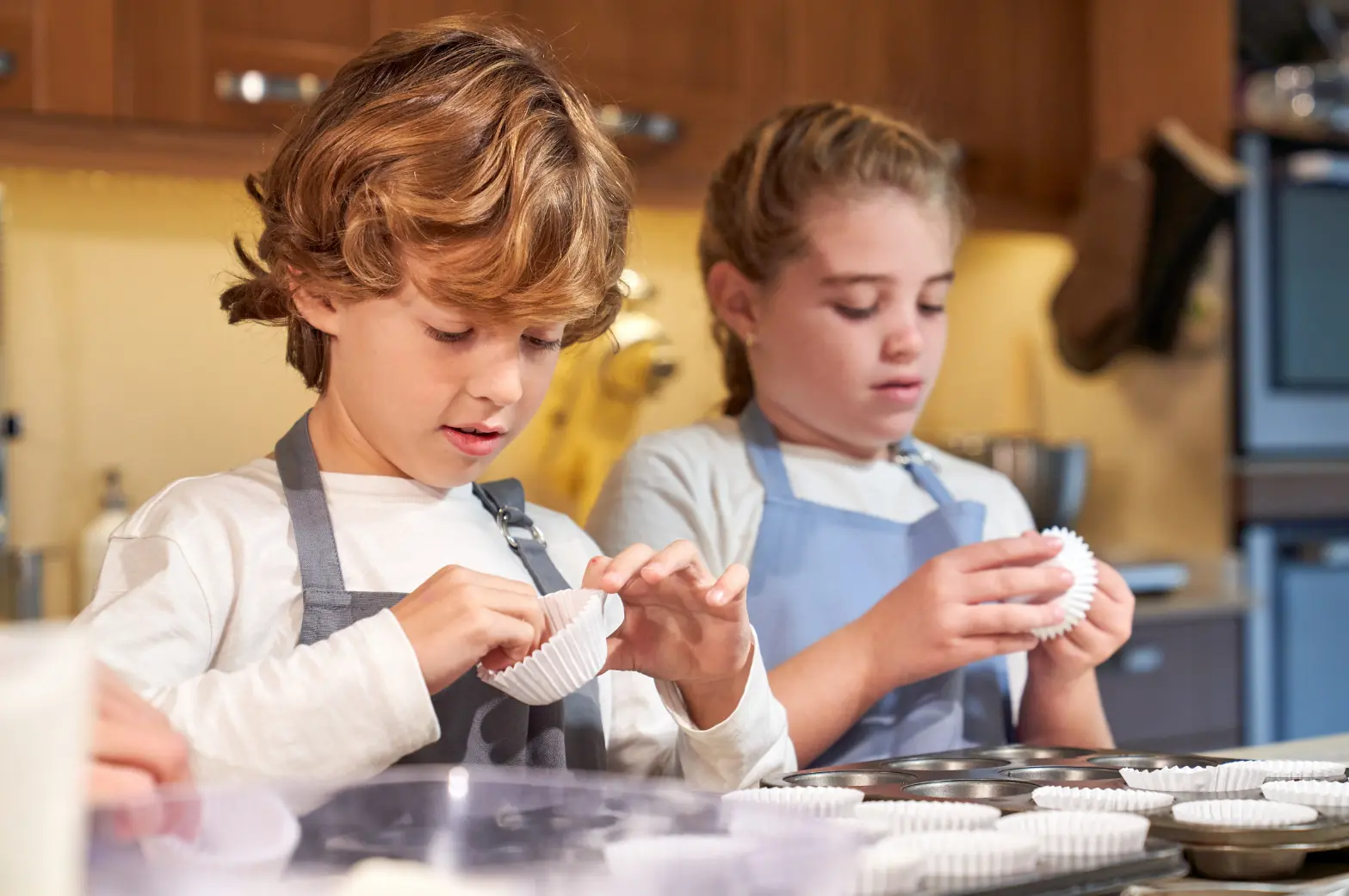
Cooking is like a playground for the mind. Kids get to mix, measure, and make magic happen with food. They dream up new tastes and dishes all on their own. It’s a chance to think “What if?” and see what happens when they try it out.
This sparks that creative flame, lighting up their minds with possibilities.
In my kitchen adventures with little chefs, I’ve watched them tackle a recipe and then say, “Hey, let’s add blueberries!” or “What about some cinnamon?” That’s the beauty of cooking—it builds brave thinkers who aren’t afraid to step outside the recipe box.
And believe me, tasting their unique creations not only tickles the taste buds but grows big smiles of pride on those cute faces!
Promotes reasoning and making predictions
Oh, the magic that happens when kids guess what comes next in a recipe! They’re like little scientists, thinking about what will happen if they mix certain ingredients. Take salt and salad dressing – they learn too much can make it super salty.
This guessing game is great for their brains. It teaches them to use logic and think ahead.
Let’s talk pasta dishes now. Say we’re making one with tomatoes. Kids will have to figure out how many they need and decide if there’s enough sauce for everyone at the table. It’s all about looking forward, using knowledge, and solving problems before they even pop up! They get better at predicting stuff – like “Will this be yummy or way too spicy?” And hey, isn’t that a skill we all need?.
Encourages experimentation and learning from mistakes
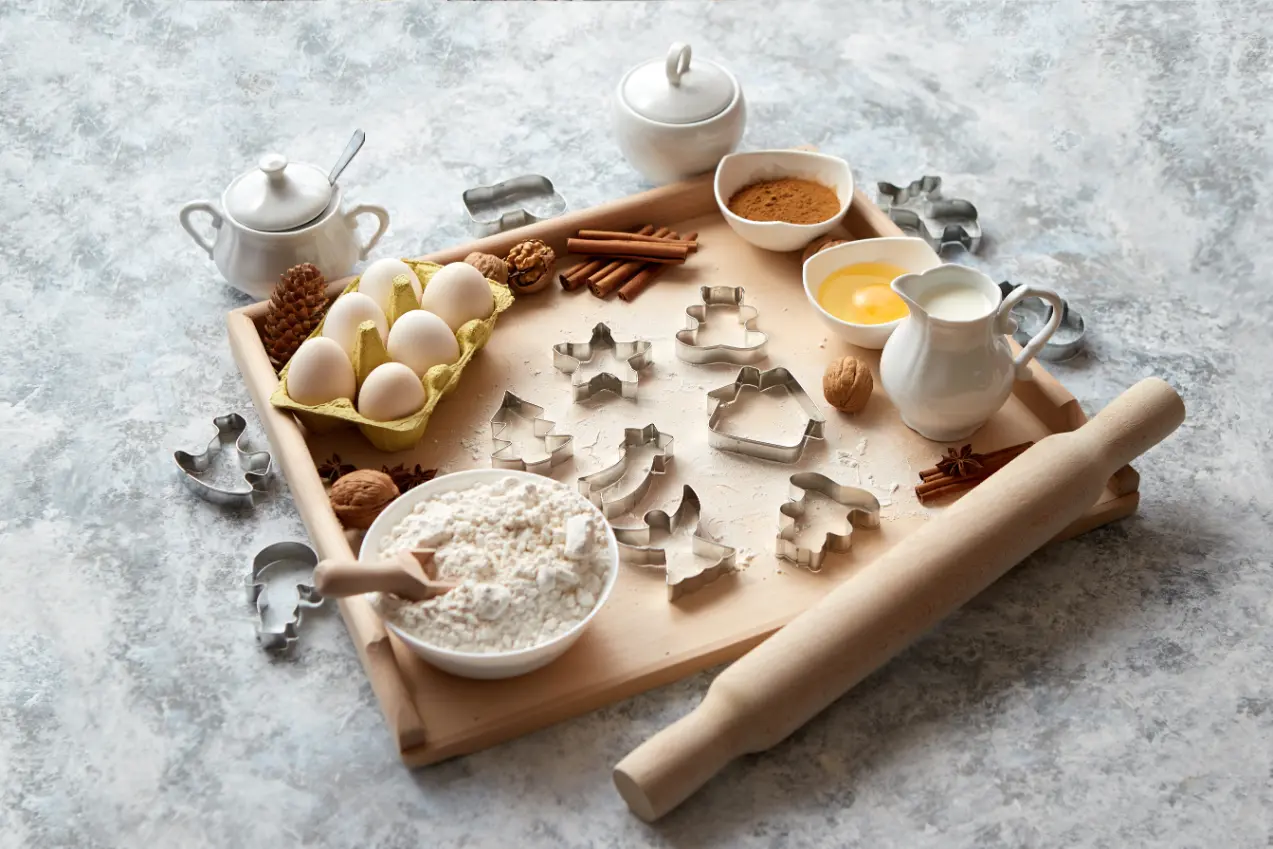
Cooking is like a science lab where every spice and ingredient can lead to a new discovery. Kids get the chance to mix things up, test out ideas, and see what happens. Suppose they toss too much salt in the salad or let cookies bake too long; it’s all part of learning.
They find out that mistakes aren’t failures – just steps on the path to making something great.
It’s all about trial and error in the kitchen. Let’s say we’re making pancakes and the first batch comes out too runny or burns to a crisp (oops!). We don’t give up – we adjust! Maybe add a bit more flour or turn down the heat next time.
This way, kiddos learn problem-solving firsthand by figuring out how to fix their cooking blunders.
As kids stir, pour, and taste their way through recipes, they build self-confidence along with their culinary skills. Plus, working through those oops moments teaches patience as well as perseverance – not everything turns out perfect on the first try! Now let’s see how planning and decision-making come into play when little chefs take over the kitchen..
Fosters planning and decision-making skills
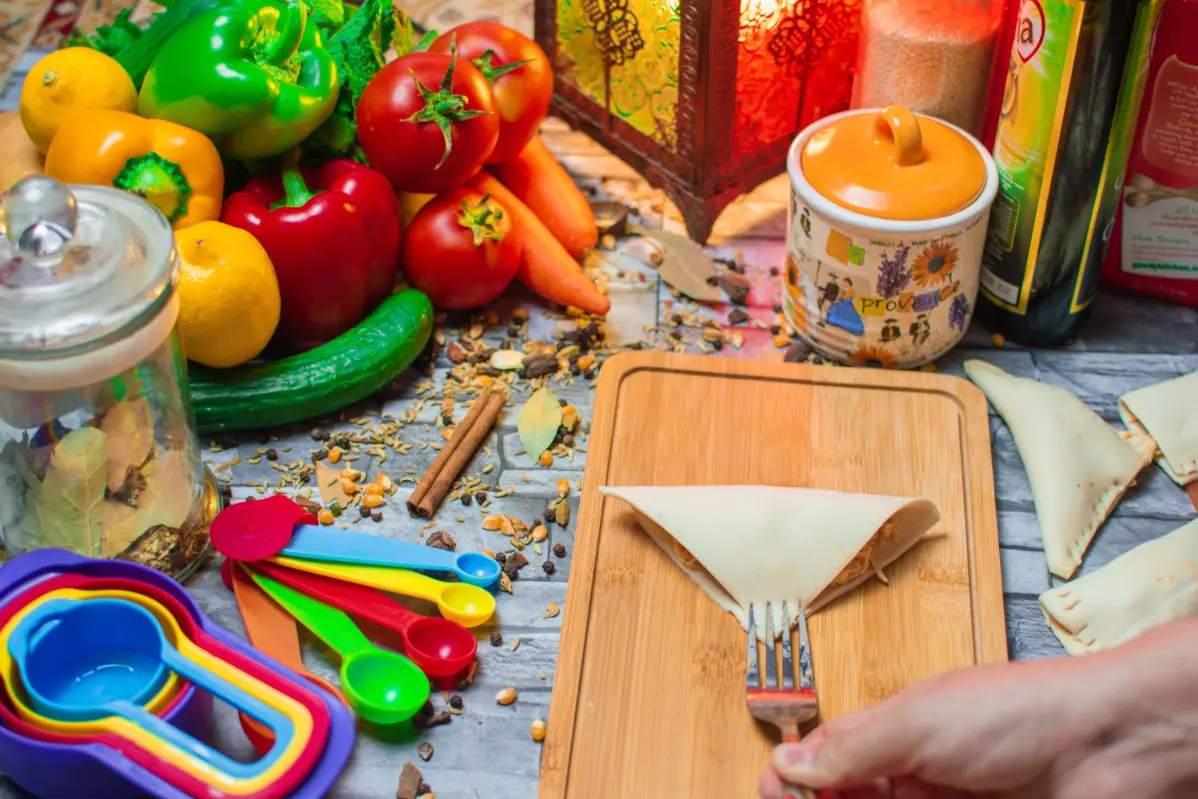
Mistakes in the kitchen can teach valuable lessons, but it’s the planning and decision-making that really cooks up some impressive life skills. Think of it this way: Every time kids decide what to make, they’re exercising their ability to choose wisely.
If they’re whipping up a batch of cookies, for instance, they need to plan out their steps – from gathering ingredients to setting the oven temperature just right.
As youngsters sift flour or measure sugar, they’re not just making a mess; they are becoming little masters at organizing and sequencing tasks. Through cooking classes, your child gets to practice these essential skills in a fun environment.
They’ll learn how tossing salad ingredients together involves more than simply throwing things into a bowl — it’s about getting the order right for the best taste and presentation.
And let’s not forget those picky eaters! Getting them involved in meal prep might just be the trick for trying new foods. As kids decide on spices or toppings, their taste buds get curious about flavors they’ve had a hand in selecting.
What’s more empowering than your kid serving dinner with pride because every choice on that plate was theirs? It sure beats battling over broccoli at bedtime!
Sure enough, cooking is like juggling various decisions while keeping an eye on time – something even us adults know all too well! Here’s where fractions and ratios come hot out of the culinary arts oven – helping kids understand portions when doubling recipes or dividing pizzas into equal shares requires sharp math skills indeed.
Before you know it, your young chef will be handling kitchen challenges like a pro – thanks to plenty of practice with planning and making smart choices each step of the way.
Enhances fine motor skills and coordination

Cooking’s like a fun game that also teaches kids how to use their hands with skill. They learn to chop veggies, stir mixtures, and sprinkle spices—each move helping them get better at controlling their little fingers and hands.
It’s kind of like playing, but they’re also learning important skills they’ll need for writing and tying shoes.
Oh! And don’t forget about coordination. Picture your child flipping pancakes or rolling dough; it takes some serious hand-eye teamwork! These cooking adventures are great for kids who might be working on getting stronger in areas like physical development because every whisk and roll is practice without even realizing it.
Improves understanding of sequences and processes
Cooking is like a dance, each step leading to the next. Kids learn this flow as they mix, bake, and watch their creations take shape. They understand that to get a yummy cake, you have to follow steps in order.
First measure your ingredients, then mix them up, and finally bake before getting the sweet reward.
Seeing how things work together teaches kids about processes outside the kitchen too. Imagine your little one grasping the idea of sequences while layering lasagna noodles or realizing that certain toppings make their pizza perfect every single time! This isn’t just about food; it’s training for life skills they’ll use every day.
Nurtures patience and perseverance
Sometimes, things don’t go as planned in the kitchen. A cake might not rise, or cookies could burn. That’s okay! Kids learn to wait and try again. They find out that doing something over can lead to yummy results.
It’s all about sticking with it, even if it gets tough.
In cooking classes, I watch children discover this patience and keep going spirit. They mix batter for pancakes and wait while they cook. If the first one falls apart when they flip it, they don’t give up.
Instead, they learn what works better for the next time.
Their faces light up with pride as their skills grow stronger with each recipe tried. Next thing you know, they’re tackling more complex dishes — each step teaching them persistence pays off!
Ready to see your kiddo turn into a mini chef who tackles new challenges? Let’s stir in some confidence-building next!
Boosts confidence and a sense of achievement
Cooking is like a magic trick where kids turn ingredients into something delicious. It’s hard not to smile when they see what they’ve made all by themselves. I love watching their faces light up as they taste their own cooking.
They feel proud and that builds their confidence big time.
Imagine your child serving a salad or cookies at dinner, beaming with pride. “I made this,” they say, and everyone loves it. That boosts their self-worth like nothing else can! Plus, when things get tricky in the kitchen and they figure it out, that’s huge for them.
They learn patience too because good food takes time. And once the waiting is over and the meal is ready? Wow – talk about feeling great! Next thing you know, we’re moving from salads to planning full meals together as a family – which brings us even closer together.
The Benefits of Cooking Together as a Family

Cooking as a family is like weaving a warm blanket of memories. Every chop, stir, and taste builds not just meals but bonds that last. Think of it as a secret ingredient for strong relationships.
Kids learn to work with others, share tasks, and communicate better—all while creating something yummy!
Working side by side in the kitchen also teaches kids about helping out and taking care of one another. They see how each person’s role is important, from reading recipes to setting the table.
And let’s not forget the laughs when flour dusts our noses or noodles escape our forks! These are moments that turn into stories we tell again and again.
Now picture this: your little chefs growing more confident every time they crack an egg or flip a pancake all by themselves. Their faces light up with pride—what could be sweeter? Plus, cooking together means learning life skills early on—like measuring for math practice or exploring science through baking soda volcanoes in muffin tins.
So grab some aprons—it’s not just dinner you’re making; it’s happiness too!
Conclusion
Alright, let’s wrap this up! You’ve got the scoop now – cooking isn’t just about making yummy food. It’s a secret superpower for kids to learn problem-solving skills. They get to mix creativity with logic and see their choices turn into tasty treats.
Plus, they build math and language skills without even knowing it – sneaky, right?.
Think of your kitchen as a little lab where every recipe is an exciting experiment. Kids learn patience as they wait for cookies to bake and boost their confidence when they nail that perfect pancake flip.
And you? You’re not just cooking; you’re teaching life’s big lessons one spoonful at a time.
So grab those aprons, pick out a fun recipe, and dive in together! Remember, every spill is just another chance to solve a problem (and maybe have a laugh too). Here’s my last nugget: Cooking blends learning with love—so what are you waiting for? Fire up that stove and let the adventure begin!
Discover more about how the benefits of cooking together as a family can enhance your child’s learning experience.
FAQs
1. How does cooking teach kids to solve problems?
Cooking is like a tasty puzzle, right? Kids learn to follow directions, measure ingredients (hello, math skills!), and if something doesn’t go as planned—like oops, too much salt—they figure out how to fix it!
2. Can cooking help children with ADHD or dyslexia improve in school?
You bet! Cooking needs attention and following steps, which is great for brains that jump around. Plus, reading recipes can boost those word recognition gains. It’s a win-win with yummy results.
3. Why should I get my child involved in the kitchen for learning?
Well… think of the kitchen as a classroom that smells amazing! It boosts creativity—ever tried tossing salad into art? Also builds confidence—I mean, who wouldn’t be proud of making their first pancake stack?
4. Does stirring up recipes do anything for young ones’ talking skills?
Absolutely! Chatting about what they’re whipping up develops language and even nonverbal communication—you know—those proud grins when they taste their masterpiece.
5. My kid’s super picky with food; any chance cooking could change that?
You might be surprised! Getting hands-on with all kinds of foods turns on those sensory experiences… touching dough or smelling spices can turn “Ew” into “Mmm!”
6. Can shaking pans relate to what my kiddo learns at school?
Shaking pans equals shaking up learning—in good ways! They’ll see connections between what they cook and social studies (where does cinnamon come from?), health education (why are veggies heroes?), even geometry (slicing pizza teaches angles). Cool, huh?




